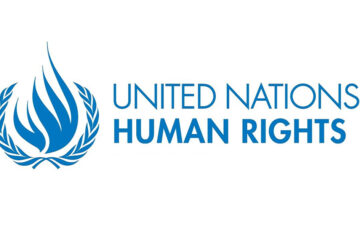FMA | Statement for International Women’s Month 2021
It has been almost a year since the Philippines was placed on lockdown, and during this period we have seen how devices and digital platforms have become essentials for Filipinos in the ‘new normal’. Jobs, economy, public services, and education have been largely dependent on online platforms. Filipinos spend the most time online and yet the country is among the lowest in Internet affordability and ranks below average in mobile and broadband speed.
In FMA’s discussions with representatives from various women’s sectors over the last year, women’s challenges with ICTs became more apparent with the implementation of the lockdown and women were forced to shift to online spaces due to the pandemic. Some indigenous women are maximizing their available online communication platforms to document and report police brutality and human rights violations in their areas. Yet, they have to borrow devices from their male local leaders and heads of household and hike to certain grounds for reliable connection. Women workers who were left jobless after their companies’ downsizing are turning to the gig economy to earn income. Faced with absence of health benefits and living wage, women laborers are at risks of contracting COVID-19 as they fulfill on-call duties while shouldering the digital skills needed for platform-based labor.
Income-generating means could come in the form of online selling and digital gig work. Videos, podcasts, and other forms of online content are being circulated to provide information about sexual and reproductive health. Law enforcement and public service agencies are boosting their visibility across platforms to reach more citizens. Even online forums and channels for group communication provide spaces for women to connect with each other and strengthen women’s voices for political participation. However, inaccessibility of ICTs and the internet continues to be a roadblock for women to be able to avail the diverse opportunities on the web. It is also equally important to make such online spaces as safe and meaningful for women to use as it is accessible to them.
Domestic violence cases, which have been prevalent in the Philippines, increased during the lockdown period. Online gender-based violence also reached a new high in 2020. The socioeconomic perils wielded by the COVID-19 crisis are driving household heads to exploit children for profit. Female students are also reportedly resorting to selling their nudes to meet the finances needed to cover the lack of subsidies for gadgets and mobile data for online learning. Women are still being targeted with cybersexual violence such as sextortion, non-consensual use and sharing of intimate images, and sexual threats. Reports continue to surface about deepfaked videos and photos of women, cyberflashing in video conferencing platforms, as well as disinformation against Filipino women personalities and public figures who are critical of the government’s priorities. With limited mobility, ICTs and the internet are the most valuable tools for victim-survivors to ring the alarm.
These persistent challenges impede women from fully exercising online the same human rights that they have offline. If left unaddressed, the digital gender gaps and existing violence online is tantamount to allowing the ICTs to be just as oppressive as the many forces offline that hinder women from progress. Not only is a VAW-free Internet vital to women’s meaningful connectivity, it is also part and parcel of making safe spaces for women and supporting the gender equality that we are all striving towards.
The Foundation for Media Alternatives, an organization that works on gender & ICT discourse in the Philippines, is one with women’s organizations and human rights groups in the continued fight for women’s rights. We denounce any and all forms and manifestation of violence, and amplify the call for safe spaces for women offline and online. In working toward democratizing ICT and making it an empowering tool for all, we will continue to promote women’s rights with fellow feminist groups and individual advocates in exploring, elevating, and popularizing gender & ICT discourse in the Philippines. FMA will continue to provide trainings and digital security support to women’s groups and women human rights defenders.
We call on the government to make opportunities for digital skills and media literacy available for all women across sectors to aid women’s understanding and use of technology. Policies that will help make ICTs and the Internet more accessible, reliable, and safe for women to use should be upheld and implemented to close the digital gender gap in the country. We support ICT that is inclusive of women’s perspectives and assert that an Internet that does not work for women, does not work for all.#
![]()



0 Comments